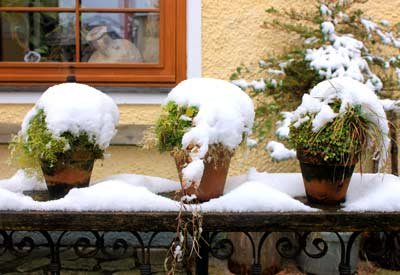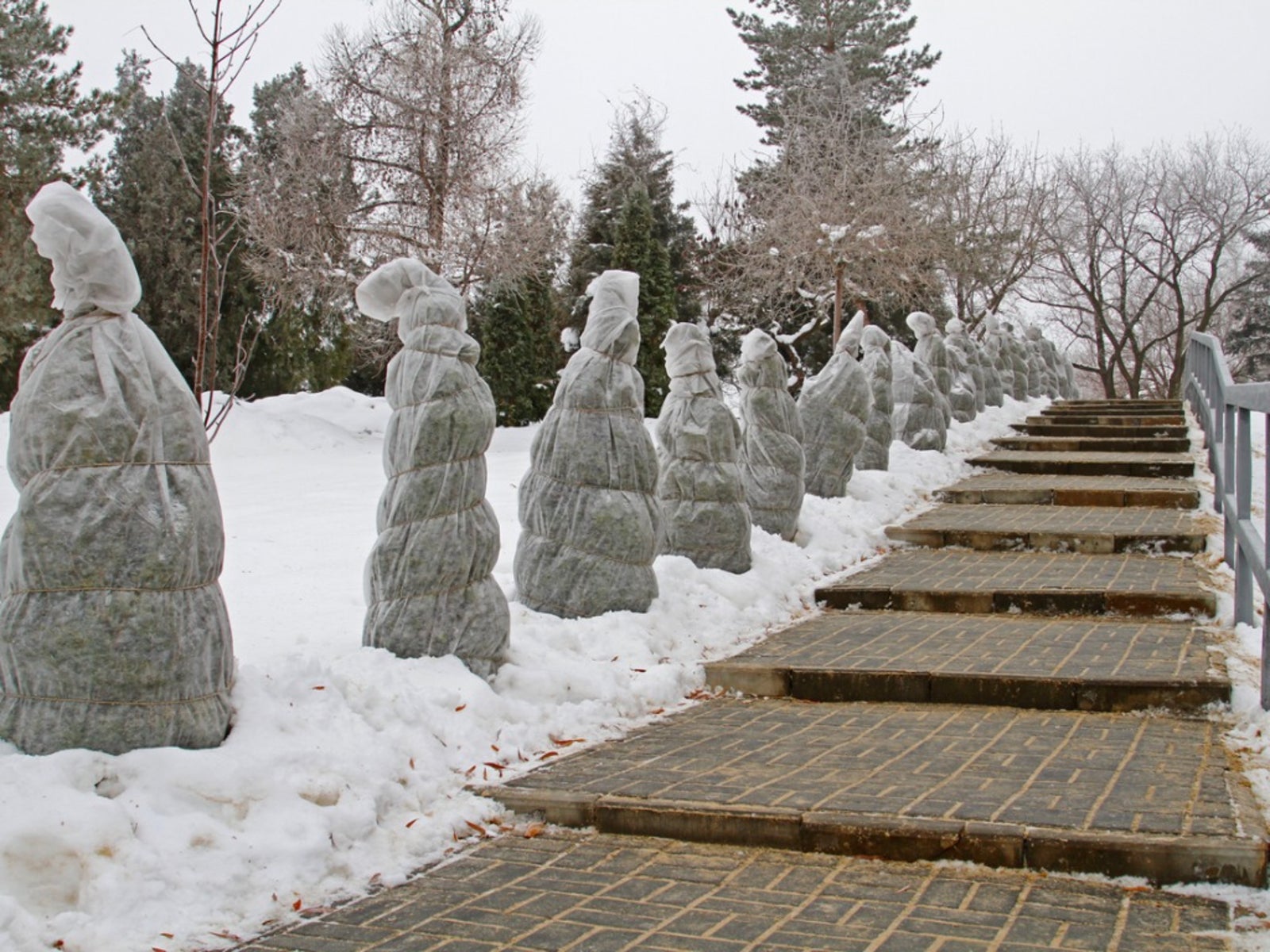How to Protect Potted Rose Plants During Winter Snow

It’s that time of year again when the snow starts to fall and the temperatures drop. If you have potted rose plants, you may be wondering how to protect them from the cold weather. Here are a few tips to help you keep your roses safe and healthy during winter snow:
1. Move your plants indoors or into a garage: If possible, move your potted rose plants indoors or into a garage where they will be protected from the snow and cold temperatures.
2. Cover your plants: You can also cover your potted roses with a tarp or blanket to help insulate them from the cold weather. Make sure the cover is secured so it doesn’t blow away in the wind.
3. Water regularly: Be sure to water your potted roses regularly, as they will need extra hydration in the winter months. Allow the soil to dry out slightly between watering so that the roots don’t rot.
- If your rose plants are in pots, bring them indoors or cover them with a thick layer of mulch to protect the roots from freezing
- Water your plants well before the first frost hits to help them withstand the cold weather
- Place your potted plants in a sunny spot near a window where they will get some light and warmth from the sun
- Check on your plants regularly during winter to make sure they are not drying out or suffering from too much cold or heat
- When spring arrives, slowly acclimate your rose plants to being outdoors again by gradually increasing their exposure to sunlight and fresh air
🌹 Winterizing Potted Plants // How to Protect Potted Plants during Winter
What are Some Tips for Protecting Potted Rose Plants During Winter Snow
If you live in an area where snow is a winter reality, take heart – roses can survive and even thrive under a blanket of the white stuff. Here are some tips for protecting your potted rose plants during winter snow:
1. Choose a pot that is large enough to accommodate the roots of your rose plant, but not so large that it will be difficult to move around once it’s filled with soil and water.
A plastic pot is ideal, as it won’t crack in cold weather like ceramic or clay pots can.
2. Fill the pot almost to the top with high-quality potting mix, then water well before adding your rose plant. Gently backfill around the roots with more mix until the root ball is completely covered.
3. When snowy weather is forecast, cover your potted rose plant with a layer of bubble wrap or horticultural fleece. This will help to insulate the roots and prevent them from freezing solid.
4. Place the covered pot in a sheltered spot outdoors – beneath a porch or deck, for example – to further protect it from harsh weather conditions.
How Can I Insulate My Potted Rose Plants to Prevent Damage from the Cold Weather
If you’re concerned about your potted roses getting damaged from the cold weather, there are a few things you can do to help insulate them. One option is to move your pots into a garage or shed during particularly cold snaps. If that’s not possible, try wrapping the pots in bubble wrap or blankets.
You can also create a mini greenhouse for your plants by placing them on a sunny windowsill and covering them with a plastic sheet or cling film. Just be sure to remove the coverings during the day so that your plants don’t get too hot.
Is There a Way to Prevent My Potted Roses from Freezing in the Winter
Yes, there are ways to prevent your potted roses from freezing in the winter. One way is to bring them indoors or into a garage during the colder months. You can also wrap them in burlap or another type of breathable fabric to help insulate them.
If you live in an area with particularly cold winters, you may want to consider investing in a heated greenhouse or other type of temperature-controlled environment for your potted roses.

Credit: www.gardeningknowhow.com
Conclusion
If you live in an area where winters are cold and snowy, you may be wondering how to protect your potted rose plants during the winter. Here are a few tips:
1. Move your plants indoors or into a garage: This will help protect them from the cold and from any snow or ice that could fall on them.
2. Wrap your plants in burlap or some other type of fabric: This will help insulate them and keep them warm.
3. Place your plants on top of a layer of straw or hay: This will help prevent the roots from freezing.
4. Water your plants regularly: Make sure to keep the soil moist, but not wet, as this can lead to root rot.
